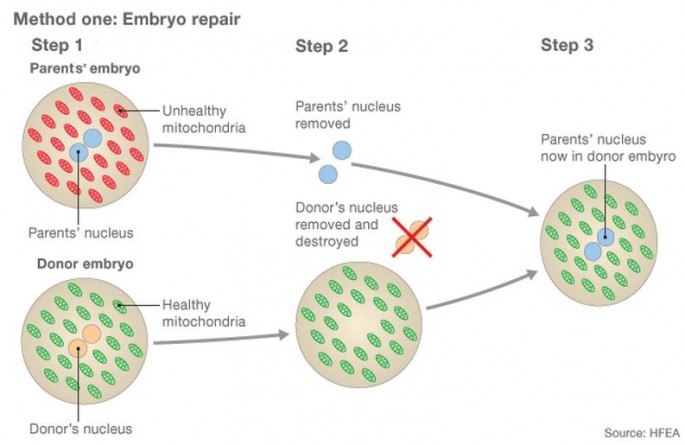The United Kingdom has become the first country to introduce laws that allow the creation of babies from three people.
After a highly charged but brief debate, The British House of Commons voted 382 to 128 in favor of the controversial medical technique called mitochondrial donation. A vote is required in the House of Lords. If the law passes the Lords, the first such baby could be born next year.
The technique is meant to stop inherited and incurable diseases being passed from mother to child, the BBC reported. The treatment is also known as "three-parent in vitro fertilization" (IVF) because babies born from genetically modified embryos will carry DNA from a mother, a father and a female donor.
It's meant to help families with mitochondrial diseases, or incurable diseases passed down the maternal line. These diseases affect some one in 6,500 children worldwide.
The process involves removing mitochondria, which are a cell's energy-generating batteries. If faulty, mitochondria can cause inherited conditions such as brain disorders, heart problems, blindness and liver failure, among others. Defective mitochondria are passed down only from the mother.
Mitochondrial DNA is different and separate from DNA found in the cell nucleus. It doesn't affect human characteristics such appearance or personality traits.
The technique uses a modified version of IVF to combine the DNA of the two parents with the healthy mitochondria of a donor woman, according to ABC News.
Babies born from this technique will have 0.1% of their DNA from the second woman. This is a permanent change that will be passed down through the generations.
Supporters of the technique say the new laws will bring a "first glimmer of hope" for families of having a baby who can at last live without suffering. On the other hands, critics of the technique claim it will lead to the creation of genetically modified "designer babies".



























